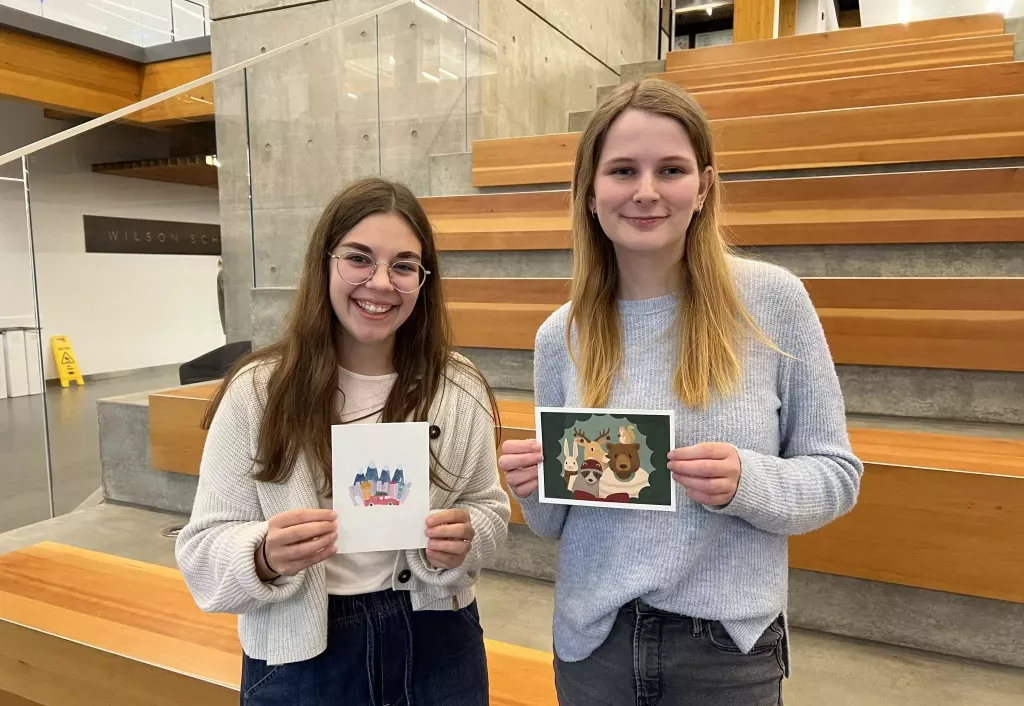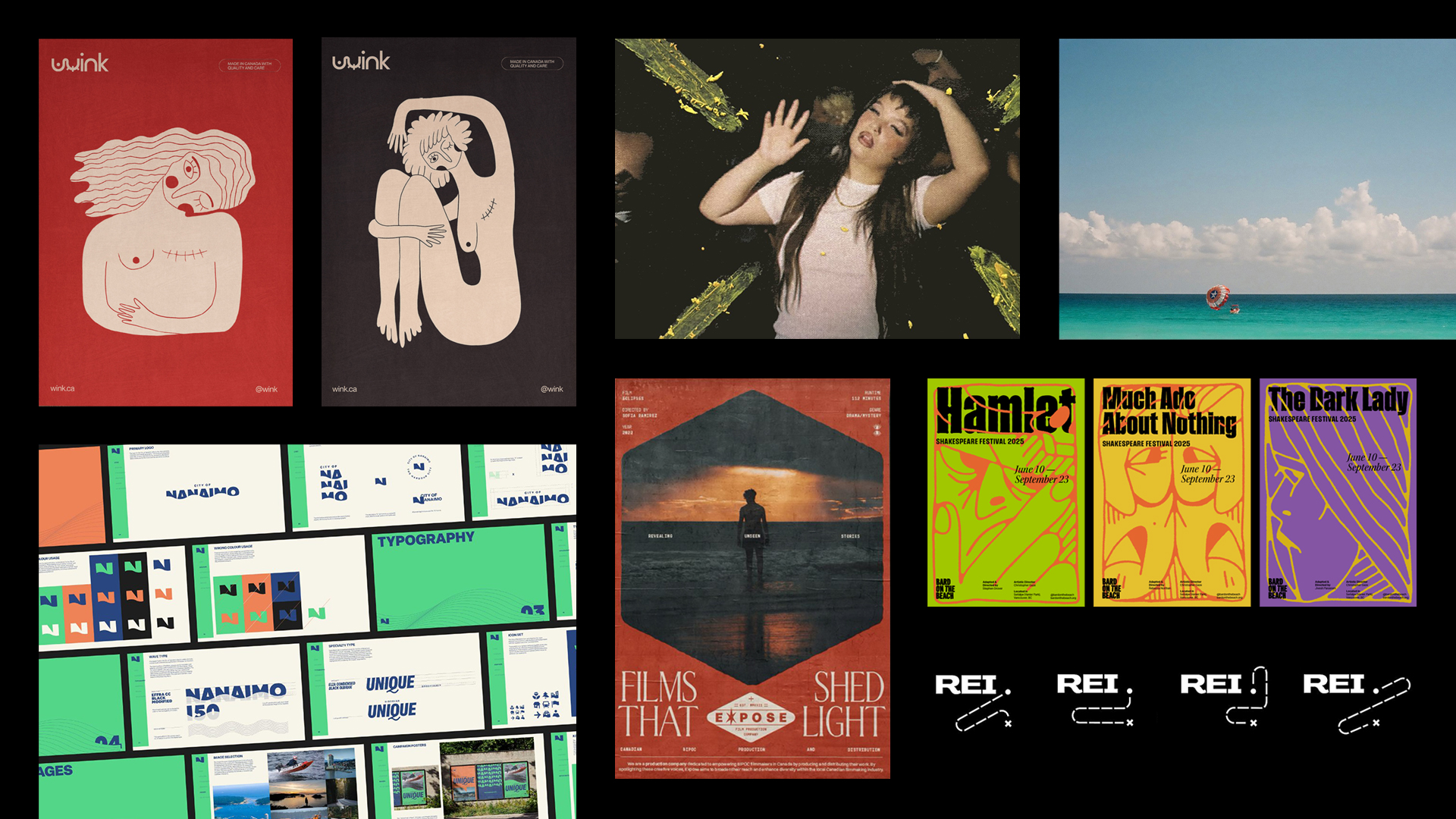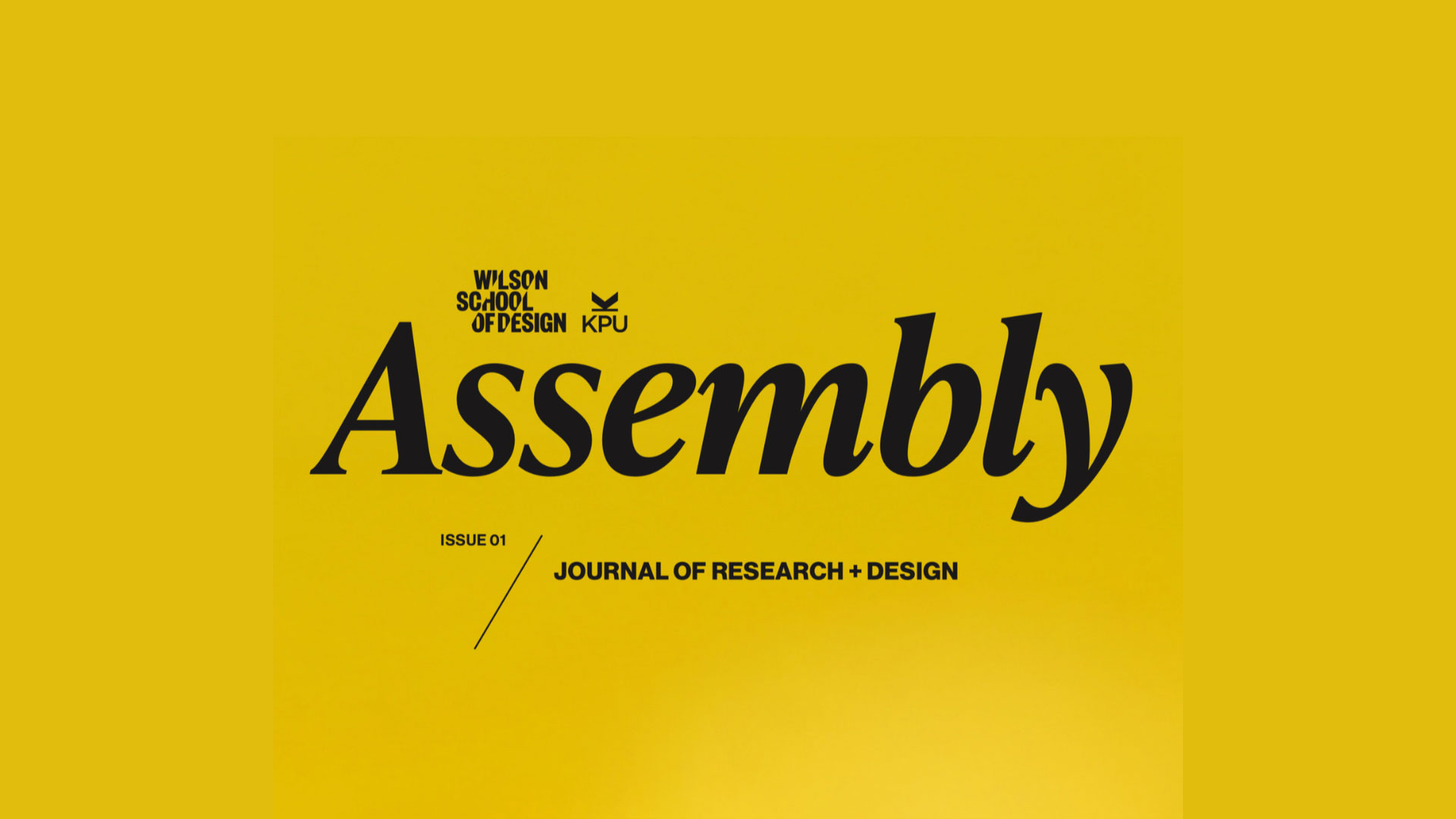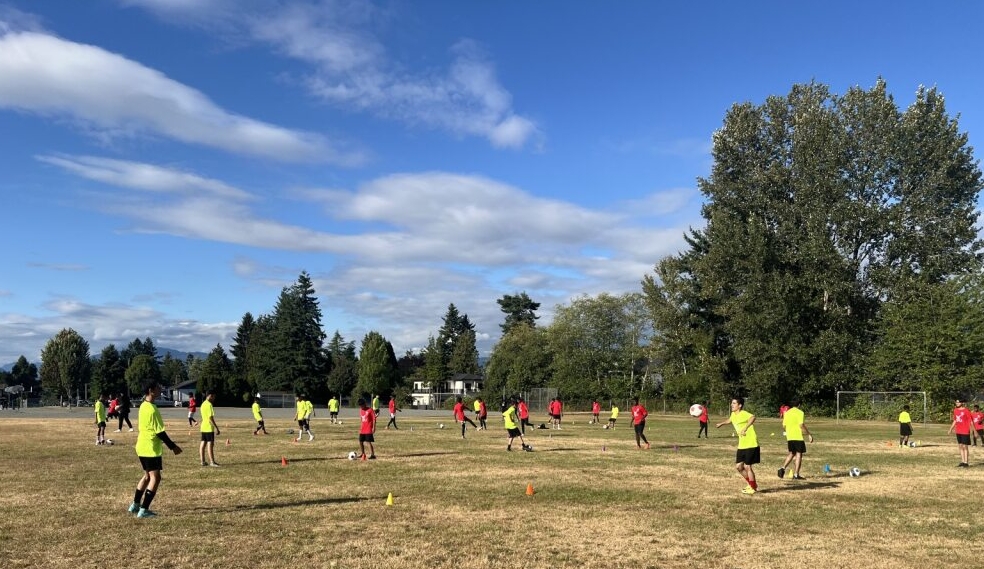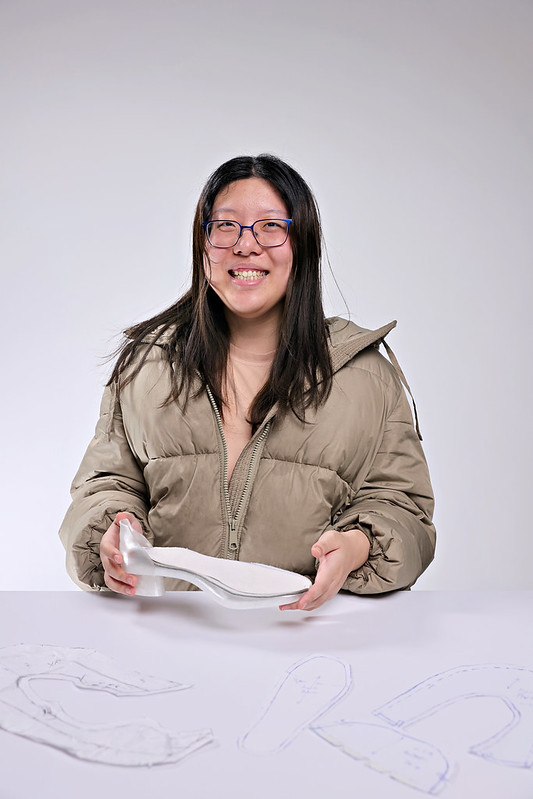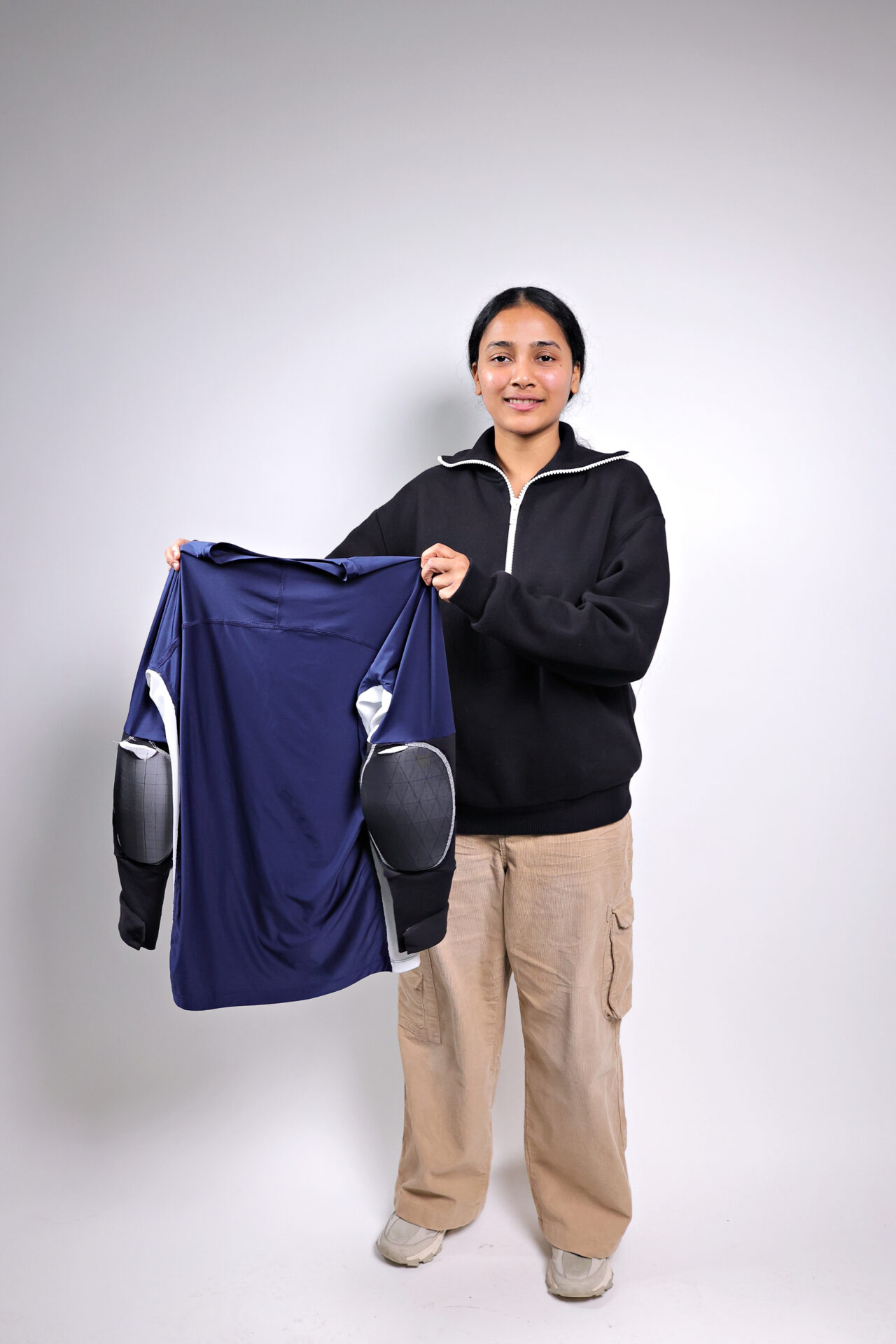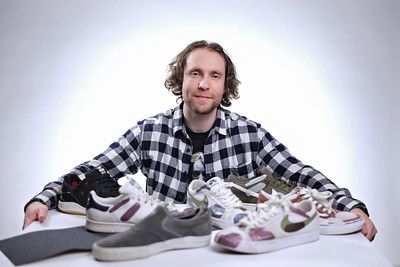When you start learning very young, sewing comes so naturally it feels embedded in your DNA.
That was Lesley Pollard’s experience. She grew up watching her mom sew the family’s clothes, and she began learning when she was eight.
“I just fell in love with it,” she says.
Pollard’s affinity for fabrics and styling evolved into a career. But for her, fashion was never about chasing the cutting edge of a trend. In fact, it was the opposite.
Growing up on a farm near Prince George, it was economical to sew your own clothes, as well as creative. Now, as an instructor of fashion design and technology at Kwantlen Polytechnic University’s Wilson School of Design, Pollard brings that same sensibility to the classroom, teaching zero-waste fashion design.
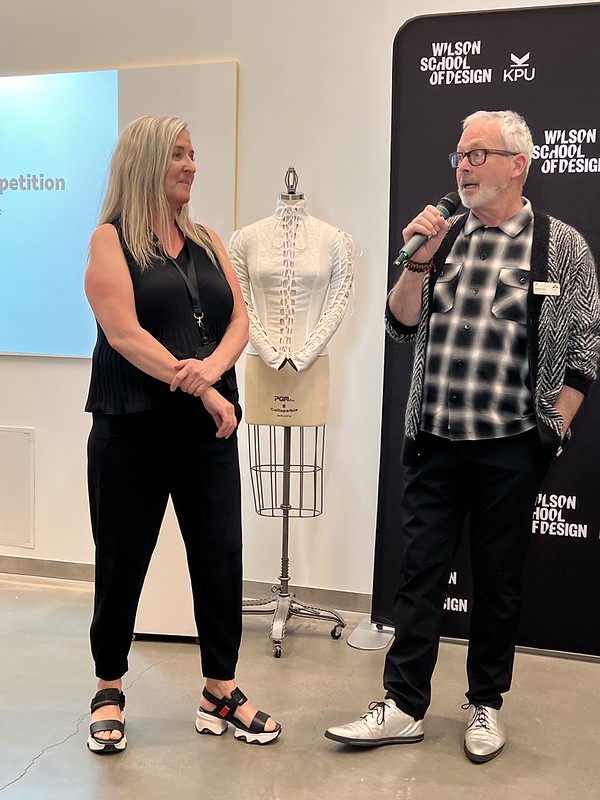
Having worked in the fashion industry, deep down I have some guilt for the industry, and the damage it’s done for the environment.
Lesley Pollard – Fashion and Technology Faculty
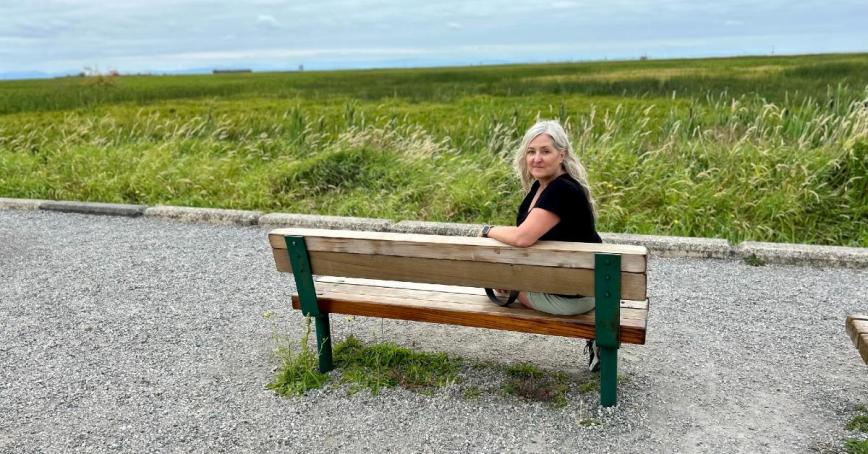
Pollard says she’s seeing some important changes in the industry. Her impulse to help lead this shift inspired her to pursue a Master of Arts in Environmental Education and Communication at Royal Roads University. She is set to graduate by year’s end and is already applying the principles she’s learning to her own students at Kwantlen.
Every year, her design students compete in a themed competition, creating pieces from recycled and found objects and textiles. This year’s theme was the Gaia theory, inspired by Lesley’s course at RRU on systems thinking.
Gaia Theory suggests that the Earth is a self-regulating, interconnected system made of living organisms that work together to make Earth inhabitable for life.
“I wasn’t sure how our fashion students – many of whom are only one or two years out of high school – would be able to connect with this theme,” says Pollard. “The results blew me away.”
Submissions included a multi-paneled skirt depicting the carbon cycle, and a tapestry of a dinner party bringing together creatures from up and down the food chain.
“I really underestimated how far they could take it, and how deeply they would research their topics. It clarified to me that the younger generations are very aware of the environment.”
These environmental principles are important to teach the fashion leaders of tomorrow, she explains. “We need clothes, but we don’t need fast fashion.”
We’re not sending out students who want to just ‘make more.’ If they want to find their niche, it has to be of value.
Pollard is now completing her major research project on nature-based mindfulness for educator well-being. It’s a return to her roots on the farm and finding wellness outdoors.
Her focus was inspired by the stress she and other teachers experienced during the pandemic, and the switch to online learning. But Pollard says she’s also seeing stress take a toll on her own students – and she’s using her mindfulness techniques to help.
“Our students are really worried about their futures, and what’s going on in the world.”
With Pollard focused on stitching all the pieces together – sustainability, wellness and creativity – her students will no doubt benefit from her commitment to her craft.
Read the original article from Royal Roads here.


